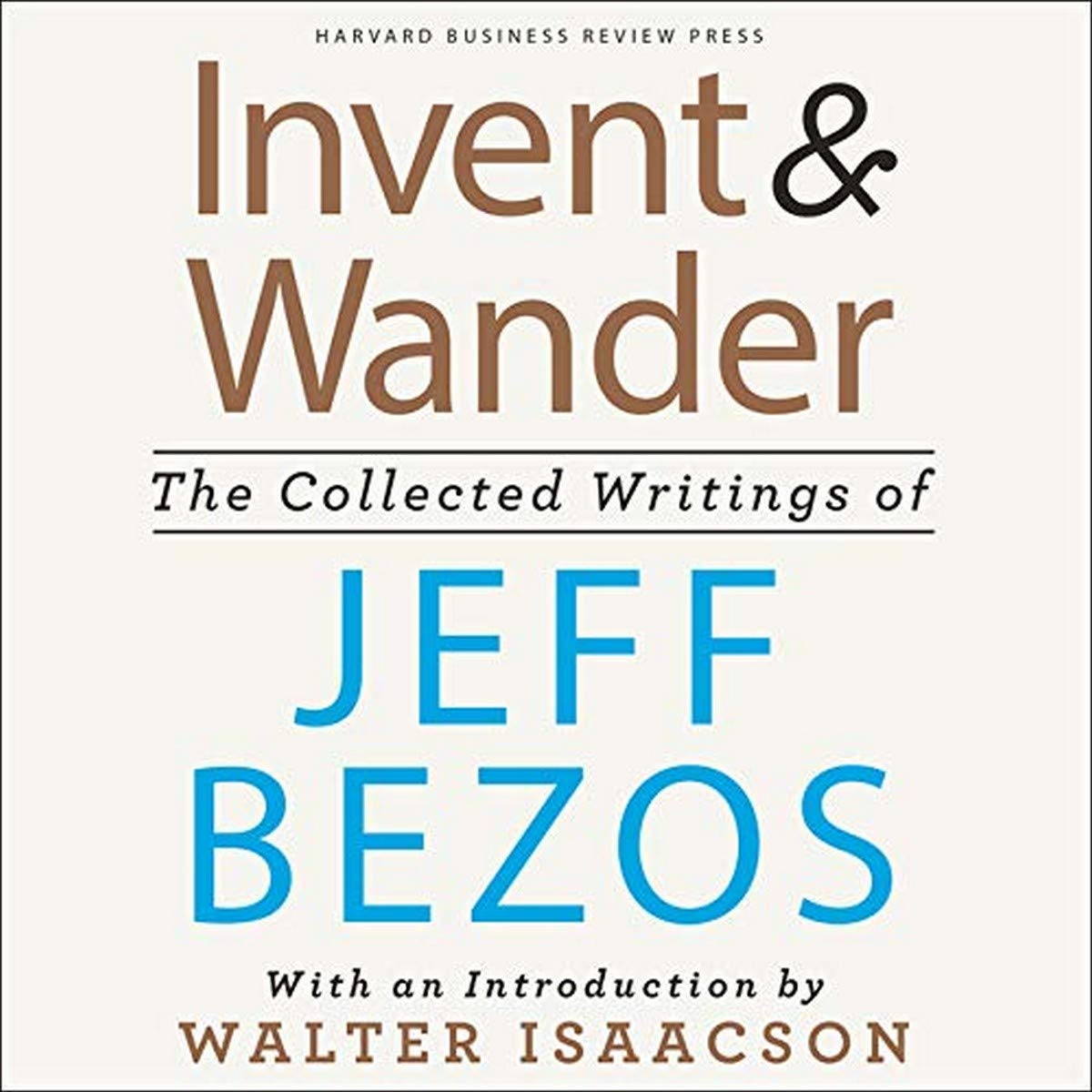Jeff Bezos built a company that’s worth about the same on the stock market ($1.67T) as the entire circulating supply of Pakistani Ruppees ($1.68T). That means you could BARELY trade every Pakistani Rupee in existence for all the stock in Amazon. I guess I’ll read some of his wisdom and see what he has to say.
I found the book pretty interesting. It’s not exactly a page turner and there are parts that are a little repetitive (the guy has clearly practiced telling his life story), but you can leaf through those parts quickly and be back in good material.
It starts with a republishing of all of his shareholder letters as CEO of Amazon (the last one you’ll have to find on the internet until they publish a new edition). They’re a fantastic read. It’s almost a retelling of the whole internet. From an optimistic Bezos reporting that Amazon had “established long-term relationships with many strategic partners, including America Online, Yahoo!, Excite, Netscape, GeoCities, AltaVista, @Home, and Prodigy.” in 1997. To a one word title of “Ouch” in 2001 after he saw some 90% of the value of Amazon wiped out. To explanations of how Amazon refuses to take a short-term perspective, even in a world where quarterly earnings are analyzed so heavily. To discussions of how, being a big company allows it to make big bets like the Fire Phone (dud) and AWS (clear winner) that it might not always win. To the mentality of “customer first” that Bezos uses to push employees because customer loyalty only lasts until your competition shows your customer something they never knew they wanted.
The remainder is a collection of Bezos’ speeches. This got repetitive with stories of how he admired his grandfather for being resourceful on a remote farm and sticking up for his mom when she was a pregnant high school. You should feel free to skip around, but don’t miss the speech on Blue Origin (his space company). The company is endeavoring to build the “infrastructure” for future generations to reinvent industries in space. He talks about the need to have big Lunar landers to send enough equipment to the moon so that the natural resources on the moon can start to be used for construction of more items in space (this makes sense since it’s much more efficient than trying to launch HEAVY things out of earth’s gravitational pull). It’s a fascinating way to choose to spend a personal fortune that is roughly 2,000,000 times larger than the average American’s.
Because of where I am professionally (with Kyndryl about to break off of IBM and provide me the opportunity to really grow the size, number of services, and the value we can provide the customers of my Cloud Advisory Service practice), I found the 2016 shareholder letter the most impactful. He talks about techniques for always staying in Day 1 because “Day 2 is stasis. Followed by irrelevance. Followed by excruciating, painful decline. Followed by death. And that is why it’s always day 1.” Resisting the urge to just get what you can from customers and instead keep innovating for customers, is the energy we’re going to need at Kyndryl.
